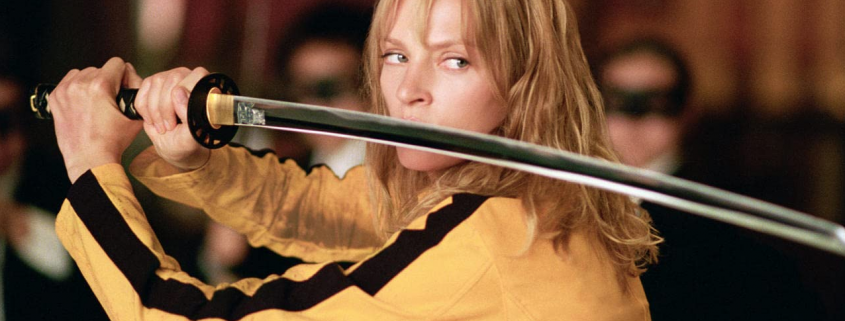Women’s History Month: Films celebrating women-centric narratives

Women in the film industry face barriers when it comes to representation, equal pay and continued acts of sexual harassment and abuse. They are exposed to toxic and sexist environments and have to fight every step of the way to have their voices heard. Despite all the challenges women face, they continue to tell important stories and carve paths for themselves, subverting stereotypes along the way. To celebrate Women’s History Month, here is a curation of films featuring women directors, stories and characters that deserve recognition:
“Little Women” (2019)
Even if you haven’t read the book, Greta Gerwig’s adaptation of Louisa May Alcott’s novel set in 19th-century Massachusetts is a universally heartwarming family tale. It is a coming-of-age story that delves into the trials and tribulations of growing up as a woman in society, featuring a star cast with the likes of Saoirse Ronan, Emma Watson, Meryl Streep and Florence Pugh. Gerwig is one of five women in Hollywood’s history to be nominated for an Oscar for Best Director. Her repertoire, including the acclaimed film, “Lady Bird,” is full of coming-of-age stories and empowering women characters to add to your list or rewatch for the sixth time — whatever the case may be.
“Portrait of a Lady on Fire” (2019)
A French historical romantic drama set in the late 18th century, the stunning visuals and slow buildup of passion is a celebration of women and their desires. A story of a forbidden lesbian romance that deals with taboo subjects such as abortions, class status and gender societal expectations — the film demonstrates the ways women fight to find their own happiness. Céline Sciamma’s movie is an artistic masterpiece that does not shy away from reminding us of women’s realities and sacrifices.
“Kill Bill: Vol. 1” (2003)
Giving birth to one of the most iconic badass female leads, “The Bride,” Quentin Tarantino’s “Kill Bill” series may not be everybody’s cup of tea. But if you are unbothered by gory violence or other Tarantino-esque elements, it is a story about a woman standing up for herself and taking revenge against those who have wronged her. Uma Thurman delivers a praiseworthy performance, channeling the rage and aggression women are expected to suppress.
“The Farewell” (2019)
Directed by Lulu Wang, “The Farewell” is based on Wang’s own experiences and depicts a Chinese American family organizing a gathering to say goodbye to matriarch Nai-Nai, the only person who does not know she has only a few months left to live. Written in both English and Mandarin, the film features a heartwarming performance by Awkwafina along with universal themes of family, culture and immigration.
“Wonder Woman” (2017)
Patty Jenkins’ “Wonder Woman” brings to life the first superhero movie directed by a woman starring Gal Gadot as Diana, the first woman superhero to get her own movie in the DC and Marvel universe. Breaking the ceiling for other women superheroes, the movie shows a compelling and unapologetic hero who genuinely wants to do good. The movie has been criticized for “not being feminist enough” due to its sexualization and objectification of Gadot. However, the filmmakers have insisted that the character is supposed to be a feminist icon making her own choices. Criticism aside, the movie is an inspiration to little girls worldwide that all women can be superheroes in their own might.
“Persepolis” (2007)
Based on Marjane Satrapi’s autobiographical graphic novel, “Persepolis” is an animated biographical story of a young girl growing up during the Iranian revolution in the late 1970s. A joint Iranian-French production directed by Satrapi herself in collaboration with Vincent Paronnaud, the film is funny and tragic at the same time. While set during a challenging time period, the story itself gives us the viewpoint of a rebellious punk-loving teenage girl from a liberal-leaning family trying to come to terms with the unrest taking place around her, all the while finding pride in her culture and identity.
“The Devil Wears Prada” (2006)
Giving birth to Meryl Streep’s role as the iconic Miranda Priestley, “The Devil Wears Prada” features a powerful, intimidating boss who is ambitious, clever and unafraid to sacrifice others to keep her position. While she is disliked by many, Priestley is a complex character who inspires awe despite being ruthless. She is a reminder that women often have to be ambitious in the workplace to maintain their authority.
“Pitch Perfect” (2012)
A celebration of women friendships, the movie follows an all-women a capella college group “The Barden Bellas,” who go on to fight against the sexist and elitist world of acappella in the national championships to show that an all-women group can win the championship. They learn from past mistakes, break away from tradition and have fun while proving the misogynists wrong. Along the way, the women support each other and grow individually and collectively as they begin to trust each other.

